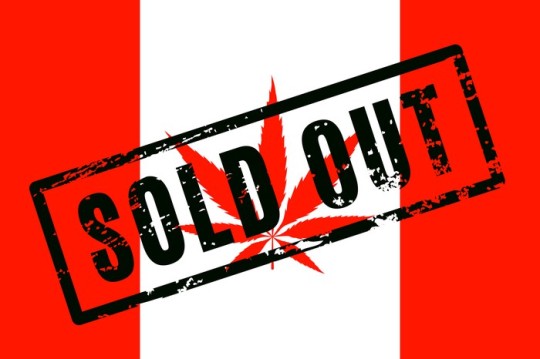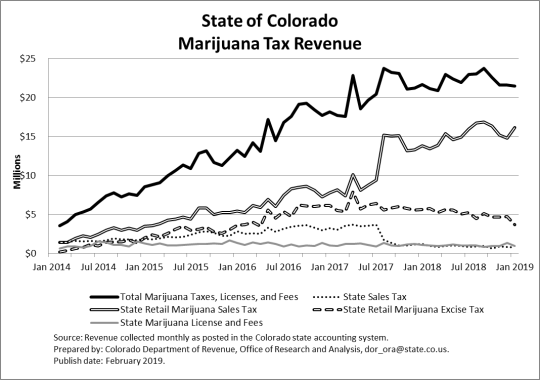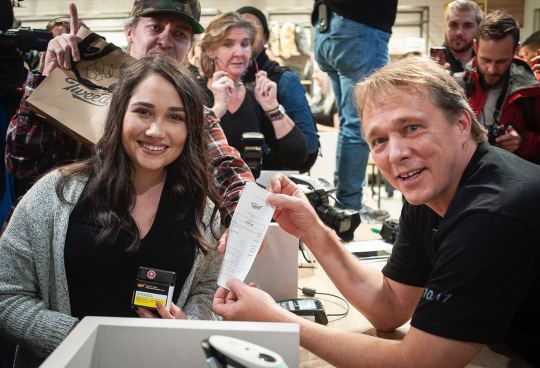Text
Room for Growth
The ever-growing Canadian cannabis industry can traverse into several different markets, far beyond just dried flowers for smoking. Industries currently not involved with cannabis study the threats and opportunities to enter this industry as well. Coca-cola is one example, that plans to make soft drink beverages that are infused with CBD (Cannabidiol), the second most common component of cannabis, which is not psychoactive, meaning it doesn’t get you high. There is also the liquor industry that plans on merging with the cannabis industry. Some companies fear the use of cannabis will make the usage of alcohol lower. Other companies, such as Constellations, owner of Corona - a popular beer, see it as an opportunity. In August 2018, Constellations invested $4 billion into the cannabis firm, Canopy Growth, raising their stake to a massive 38% from an already impressive 9.9%.
Other industries that are likely to see changes because of this new powerhouse are the medical and the pharmaceutical industries. Cannabis has been studied for its medical use for a long time, and now with full nationwide legalization in Canada, there is likely to be more growth in this field. People may turn away from conventional medicine and try cannabis for its pain-relieving attributes. CBD is a component that goes beyond what many people think of cannabis: just a way to get high, but that is mainly THC. CBD and its uses will help the cannabis industry expand beyond just recreational drug use.
0 notes
Text
Supply and Demand

The supply and demand issues currently being seen in the cannabis industry were beyond most individuals’ expectations, including me. Some firms have been participating in aggressive marketing and expansion plans to boost their revenue. One such firm, Aurora Cannabis, also known as ACB, has acquired additional production area and aims at producing at least 270,000 kgs of cannabis annually. It comes as no shock that their recent financial results revealed $54.2 million in revenue for Q2 2019, which is 83% higher than the previous quarter.
Firms have a massive potential for growth in this industry since the demand far surpasses the supply; this emphasises the need for new firms to start, or current ones need to expand. According to the CEO of Auxly, Chuck Rifici, with just the current product set, it could take up to 18 months to hit equilibrium, but given the fact that firms are diversifying into new product lines, it could take up to 3 years to hit the mark. The total sales for dry cannabis increase by 4% at the end of December 2018, while the inventory held fell by 4% when compared to November 2018.
The internal issues that hinder a firm's ability to deal with the demand were exhibited when 12 cannabis shops were closed for 3 days by the Government for being unable to meet the demand. However, there are also external issues that can interfere with a firm’s performance. Although the Online Ontario Cannabis Store, which is the only current way to purchase legal cannabis in this province, received 150,000 orders the week after legalization, deliveries could not be made due to the postal strike.
0 notes
Text
Arguments against...

On the flip side, there are reasons why some argue against the legalization of marijuana. The first of which is mental health, I personally know about the negative mental impact that cannabis can have on certain individuals, and you may assume I am personally a huge fan of weed because I chose to blog about it, but actually I am not (I am a supporter, however). I have recently been turning down offers to smoke because of the anxiety and paranoia that weed tends to give me now. Studies have shown there is a clear connection between heavy smoking and psychosis.
Many people also fear that with legalization, kids will have an easier access to weed, in the same way a big brother could by there sibling alcohol, but to be honest, weed was already extremely easy to get before legalization. Again, from personal experience, I do also agree that it is a gateway drug for some. I had not touched any form of drug until I smoked, and now I’ve dabbled in quite a few things.
On another note, even though cannabis is less addictive and harmful than alcohol or prescription drugs, that does not mean its safe. Many people are dependent on the use of marijuana and making it available across the nation won’t help with that. I suppose there is a reason it is called “the sin tax” colloquially, and some may see this new industry the same as the alcohol or tobacco industry. It could be asked: just because other dangerous drugs like tobacco or alcohol are legal, does that mean another needs to be?
0 notes
Text
Arguments for...
In this specific post I will talk about ideas supporting the legalizations. Firstly, I am a believer in human liberties in the sense that individuals should have the freedom to engage in recreational activities absent from governmental interference. The consumption of marijuana should not harm anyone, at least beyond the actual user. If used responsibly and regulated well, there is no reason that this business shouldn't prosper.
Secondly, the CDC found that alcohol had led to about 88000 deaths each year from 2006 to 2010 in the united states, where as with cannabis, I can’t find evidence of any overdoses. Therefore, if alcohol is legalized, is killing thousands yearly, and ruining many more (alcoholism is no joke), why can’t something with fewer damaging traits be legalized? Further, what about tobacco or even coffee; both are addictive, the former is quite deadly, and the latter is often looked over as not even being a drug.

Also, the amount of revenue the Canadian government can get from taxing the sale of marijuana could boost the GDP. Look at Colorado’s tax revenue from pot, since the state’s legalization, they have made almost 1 billion in tax revenue! That is just the tax revenue for one state in the US of A, this revenue could be invested into the education system or better healthcare in Canada. Currently, there is the excise law, commonly known as the “sin tax”, being used on both recreational and medical cannabis in Canada. I also look forward to the future studies of medicinal cannabis usage, with legalization, I think it will be easier for researchers to understand the effect of cannabis in various scenarios.
0 notes
Quote
It’s been too easy for our kids to get marijuana - and for criminals to reap the profits. Today, we change that. Our plan to legalize & regulate marijuana just passed the Senate. #PromiseKept
Justin Trudeau
0 notes
Text

Imagine, you’re waiting in line patiently, hundreds of people are ahead of you and behind you. What are waiting for, the newest iPhone? The latest merch from your favourite musician? What if you were waiting for a couple grams of your favorite strain of weed? That is how the people shown above (the very first legal transaction) spent their day on October 17th, 2018, the day it was legalized for recreational use across Canada.
This began with the election of current prime minister, Justin Trudeau, who promised to legalize marijuana not only medically, but also recreationally. It seemed like the logical step, to me, just as the prohibition of alcohol had come to an end, as would the prohibition of cannabis. Canada is only the second nation to legalize recreational marijuana, beaten only by Uruguay. Specific states in the US have done the same, others are pushing for the legalization and study for medical usage, and others still punish use of cannabis harshly.
The channels at which you can purchase cannabis differs from province to province. In Ontario, for example, you can purchase it legally through the online store: OCS.ca. They will send the delivery right to your door, and I can personally vouch that it is safe and timely! Canadians are still split when it comes approval of marijuana, in a random sampling poll, only 52% approved of legalization (74% of those under 34 approved). Love it, hate it, or just down right indifferent to it, it cannot be denied that marijuana is one of the fastest growing industries in Canada, and the public’s opinion is rapidly changing towards it around the world.
1 note
·
View note